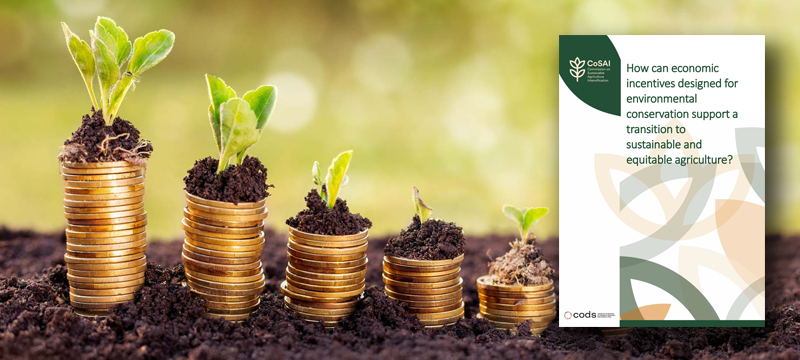
Innovation in financial mechanisms to support an inclusive, sustainable transition in agriculture
Finance is a key lever for turning agriculture from a potential source of environmental harm and social inequity to a driver of conservation and social inclusiveness. Private and public sector funding for farmers to combat climate change and protect and restore nature (‘Paying for Nature’) is rapidly increasing. Yet this new funding may not reach its aims without drastically improving farm-level reward mechanisms.
CoSAI commissioned a study from the SDG Center for Latin America and the Caribbean (CODS) at the Universidad de Los Andes (Bogota, Colombia) to look at the experience with different financial instruments on farms. CoSAI also worked with partners, in particular IUCN, to hold a series of public conversations with experts in this area.
Find out more in this CoSAI policy brief.
Actions needed
|
The Paying for Nature and Society study provides a global review of financial innovation to support an inclusive sustainability transition in agri-food systems, with a focus on payments for ecosystem services, REDD+ and voluntary standards, as well as investment in sustainable agriculture projects. The report offers recommendations for designing, implementing and evaluating new instruments to address multiple goals for the environment, productivity and inclusion.
Read our policy brief to learn more.
